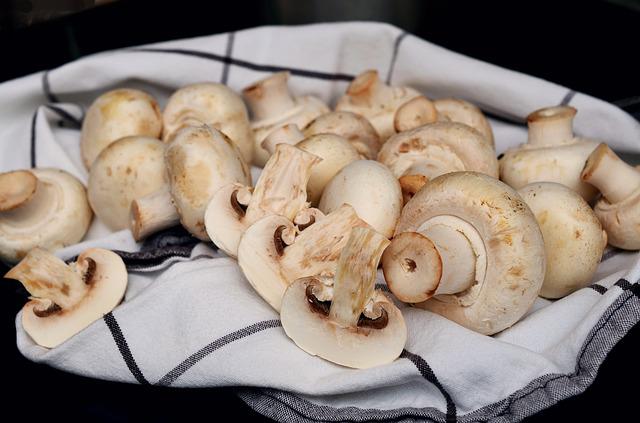Lavender oil extractor is a useful piece of equipment. Lavender oil has been widely known for its calming and soothing abilities for thousands of years. It is extracted from the lavender plant, which is native to the Mediterranean region.
Lavender oil has been found to have many therapeutic benefits, including reducing anxiety, promoting sleep, and relieving pain.
Due to its many uses, lavender oil is in high demand. As a result, many companies have developed various types of lavender oil extractors, such as CO2 oil extractors, lavender oil extraction machines, and cold press oil extractors.
In this blog post, we will discuss the different types of lavender oil extractors, their advantages and disadvantages, and which one is the best choice for you.
CO2 Oil Extractor
A CO2 oil extractor is a type of lavender oil extractor that uses carbon dioxide under high pressure and low temperatures to extract essential oils from plants.

This method is often used in the extraction of lavender oil, as it is a highly efficient and effective method of extraction. CO2 oil extractors work by creating a liquid CO2 environment, which dissolves the essential oils in the plant material.
The CO2 is then removed from the solution, leaving behind the pure essential oil.
Advantages:
- CO2 oil extractors produce high-quality essential oils that are free of impurities and chemical residues.
- It is a very efficient method of extraction, producing a high yield of essential oil.
- The process is gentle and does not damage the essential oil molecules, preserving the quality and purity of the oil.
Disadvantages:
- CO2 oil extractors are expensive and require a significant investment upfront.
- The process requires specialized knowledge and training to operate safely and effectively.
- CO2 oil extractors require high-pressure storage tanks, which can be dangerous if not handled properly.
Lavender Oil Extraction Machine – Steam Distiller
A steam distiller is a piece of equipment that uses steam distillation to extract essential oils from lavender plants. To extract the essential oils from the plant material, the process involves heating it and then collecting and condensing the oils into a liquid.
Machines for extracting lavender oil come in various sizes and capacities, making them appropriate for both small and large-scale production.
Advantages:
- Lavender oil extraction machines are relatively affordable compared to CO2 oil extractors.
- They are easy to use and require minimal training.
- They can be used for both small and large-scale production, making them suitable for a range of applications.
Disadvantages:
- The quality of the essential oil produced by a lavender oil extraction machine can vary depending on the quality of the plant material used.
- The process can be time-consuming and may require a large amount of plant material to produce a significant amount of essential oil.
- The essential oil produced may contain impurities or chemical residues.
Cold Press Oil Extractor
A cold press oil extractor is a machine that extracts essential oils from plant material using pressure without the use of heat or chemicals. This method is often used in the extraction of lavender oil, as it produces a high-quality oil that is free of chemical residues and impurities. Cold press oil extractors work by applying pressure to the plant material, forcing the essential oils out.
Advantages:
- Cold-press oil extractors produce high-quality essential oils that are free of impurities and chemical residues.
- They are a simple and easy-to-use method of extraction, requiring minimal training.
- Cold press oil extractors are relatively affordable compared to CO2 oil extractors.
Disadvantages:
- The yield of essential oil produced by a cold press oil extractor can be lower than other methods
Which Extractor is Best for Small Businesses?
The best extractor for small businesses depends on several factors, including budget, available resources, and the type of essential oils you want to produce.
Lavender oil extraction machines and cold press oil extractors are generally more affordable and easier to use than CO2 extractors. They also require less specialized knowledge to operate and maintain.
If you are looking to produce small batches of essential oils for personal use or small-scale production, a lavender oil extraction machine or a cold press oil extractor could be a good option.
However, if you are looking to produce large quantities of high-quality essential oils, a CO2 extractor may be a better choice, even though it can be expensive. Ultimately, it is important to do your research and choose an extractor that fits your specific needs and budget.
Conclusion
In conclusion, extracting essential oils from lavender plants is a process that requires taking into account of several factors, including extraction method, plant material quantity, and equipment cost. CO2 oil extractors, steam lavender oil extraction machines, and cold press oil extractors are all viable options for lavender oil extraction, each with its own benefits and drawbacks.
Choosing the right extractor depends on your specific needs and resources. It is also important to note that proper storage and use of lavender oil is crucial for its effectiveness and safety.
By following the tips and information provided in this blog post, you can make an informed decision about which lavender oil extraction method is best for you and produce high-quality essential oils to enjoy their therapeutic benefits.
FAQs
Here are ten frequently asked questions related to lavender oil extraction:
1. What is lavender oil used for?
Lavender oil is commonly used for its calming and soothing properties. It is often used to reduce anxiety, promote sleep, and relieve pain.
2. What is a CO2 oil extractor?
A CO2 oil extractor is a machine that uses carbon dioxide under high pressure and low temperatures to extract essential oils from plants, including lavender.
3. What is a lavender oil extraction machine?
A lavender oil extraction machine – a steam distiller – is a piece of equipment that uses steam distillation to extract essential oils from lavender plants.
4. What is a cold press oil extractor?
A cold press oil extractor is a machine that extracts essential oils from plant material using pressure without the use of heat or chemicals.
5. Which lavender oil extraction method is best?
The best extraction method depends on your specific needs and resources. CO2 oil extractors produce high-quality oils but are expensive, while lavender oil extraction machines are affordable and easy to use. Cold press oil extractors are a simple and affordable option but produce lower yields.
6. How much lavender plant material is needed to produce essential oil?
The amount of lavender plant material needed depends on the extraction method used and the yield desired. Generally, steam distillation methods require larger amounts of plant material than CO2 extraction methods.
7. Can the lavender essential oil be extracted at home?
Yes, the lavender essential oil can be extracted at home using a distillation kit or other extraction equipment.
8. How long does it take to extract lavender oil?
The time it takes to extract lavender oil depends on the extraction method used and the amount of plant material being processed. CO2 extraction methods can take as little as a few hours, while steam distillation methods can take several hours and more.
9. How long does lavender oil last?
Lavender oil can last for several years if stored properly in a cool, dark place away from sunlight and heat.
10. Is lavender oil safe to use?
Lavender oil is considered safe for use when used properly. However, it is important to dilute the oil before applying it to the skin and to avoid ingesting it. Consult a healthcare professional before using essential oils if you have any underlying health conditions or concerns.






